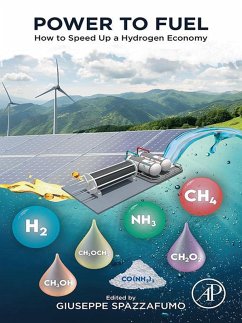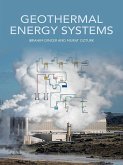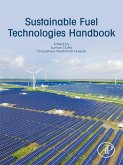Readers will find details on the state-of-the-art and emerging technologies of various power to fuels options suitable for different final uses of the stored energy, as well as figures and diagrams that illustrate and compare the different processes. The book contains examples of existing plants and pilot projects that will be useful for academics dealing with renewable energies and energy storage.
- Discusses possible applications of synthetic fuels, describing existing plants for fuel production
- Contains opinions on opportunities offered by the power to fuel concept and by single technologies
- Presents power to fuel techno-economic models and calculations down to system level
Dieser Download kann aus rechtlichen Gründen nur mit Rechnungsadresse in A, B, BG, CY, CZ, D, DK, EW, E, FIN, F, GR, HR, H, IRL, I, LT, L, LR, M, NL, PL, P, R, S, SLO, SK ausgeliefert werden.









